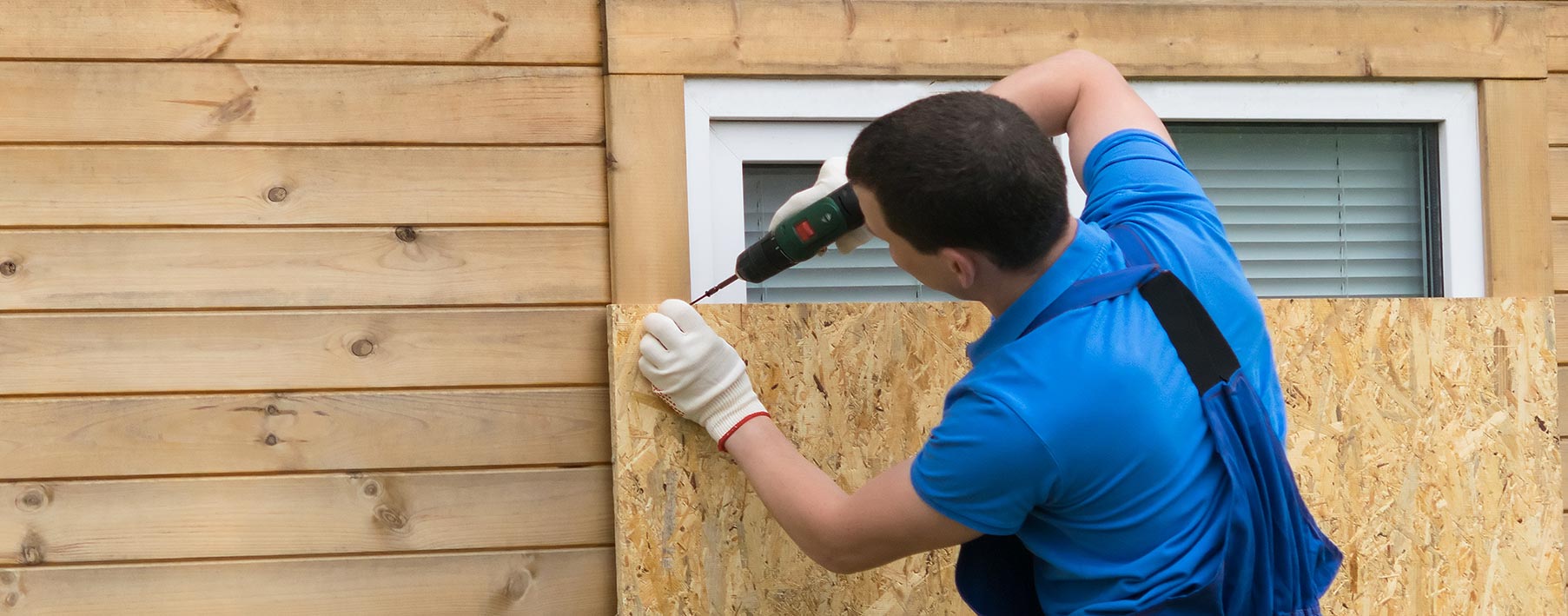Why You Need Hurricane Insurance [After the Storm]

As hurricane season approaches, coastal homeowners face the threat of severe storms that bring damaging winds and flooding.
Depending on where you live, Hurricane season spans from mid-May or early June through November, peaking in September, according to NOAA. The Atlantic hurricane season officially runs from June 1 to November 30, encompassing the Atlantic Ocean, Caribbean Sea, and Gulf of Mexico, as noted by the National Hurricane Center.
In the aftermath of a destructive hurricane, the true value of having reliable insurance coverage becomes painfully clear. However, standard homeowners insurance often falls short of covering these specific hazards, leaving homeowners vulnerable to significant financial loss. However, adding supplemental hurricane insurance can have your back in the event of a disaster.
Hurricane insurance stands as a crucial safeguard for homeowners in storm-prone regions, offering financial protection against the unpredictable forces of nature. Whether you're required by your mortgage lender or choosing to protect your investment, understanding the relationship between insurance and hurricanes is crucial.
This guide explores why you need it, what it covers, and how to prepare for the stormy months ahead.
Key takeaways
- Hurricane insurance provides coverage for high-risk areas prone to hurricanes.
- It protects against damages like wind, flood, and storm surge, typically not covered by standard homeowners insurance.
- Factors influencing insurance costs include location, home value, and chosen deductibles.
- Choosing the right policy is crucial for adequate protection against hurricane-related damage.
- Steps to secure your home post-storm include immediate assessments and contacting your insurance provider promptly.
What is hurricane insurance?
Hurricane insurance isn't a standalone policy but rather coverage within homeowners insurance designed to protect homes from hurricane damage. For a tropical storm to be covered, the National Hurricane Center must officially declare it as a hurricane.
Hurricanes can inflict severe damage, making such insurance crucial to mitigate repair and rebuilding costs. It offers reassurance that financial aid will be available in the event of a disaster.
This coverage typically aligns with homeowners insurance but excludes personal property unless specified. Without such coverage, damage to personal belongings in a hurricane won’t be reimbursed, even if covered by a standard homeowners policy.
How does hurricane insurance work?
When a hurricane strikes, homeowners with hurricane insurance can file a claim to cover the cost of repairing damage to their homes. This insurance may also provide funds for additional living expenses if the house becomes uninhabitable due to hurricane damage.
The process involves assessing the damage, documenting losses with photographs and receipts, and contacting your insurance provider promptly. Insurance adjusters will evaluate the claim and determine the coverage based on the policy terms and the extent of the damage incurred.
Does homeowners insurance cover hurricane damage?
This is a very important question to ask before you take a sigh of relief with your homeowners insurance. So, does home insurance cover hurricane damage? Well, while standard homeowners insurance policies may include wind damages caused by hurricanes, they often exclude floods. Supplemental hurricane insurance is essential to ensure comprehensive coverage in storm-prone areas.
Homeowners who rely solely on standard policies may find themselves inadequately covered in the event of a hurricane, facing significant out-of-pocket expenses to repair or rebuild their homes.
Now, if you’re wondering, “Does flood insurance cover hurricanes,” the answer is no. Flood insurance and hurricane insurance are distinct policies. Flood insurance specifically covers damage caused by flooding, which can occur during hurricanes.
However, hurricane insurance typically covers wind damage and other storm-related perils but not flooding. You need both flood and hurricane insurance to fully protect your home from hurricane-related damage.
What hurricane damage does homeowners insurance cover?
Homeowners insurance typically covers damage caused by wind and wind-driven rain, provided wind coverage isn't excluded in your area. For instance, if hurricane winds damage shingles, siding, or doors, your policy will cover the repairs.
While most homeowners insurance policies do not cover flooding, they cover damage from wind-driven rain. If hurricane winds drive rain into your home, causing damage to carpets, baseboards, or walls, your homeowners insurance will likely cover those repairs.
Home insurance hurricane coverage options can vary by state and location, so it's essential to check with your policy provider.
What hurricane damage doesn't homeowners insurance cover?
Now, we know what is covered under hurricane insurance in homeowner insurance. But what damages does it exclude? While many standard homeowners policies cover some hurricane damage, they often exclude flooding and significant windstorm damage. Coverage can vary significantly based on your home's location.
Since hurricanes and tropical storms bring heavy rainfall, thunderstorms, and gale-force winds, homeowners in coastal areas often need separate policies for flood and windstorm damage. Additionally, sewer backup insurance is not covered under flood insurance and is another recommended policy to add.
Some insurers do not cover wind damage in high-risk coastal areas. Homeowners in these regions, such as beach towns in Florida, Texas, or Louisiana, often need supplemental windstorm insurance coverage through their state's wind pool insurance association.
Here are some state-sanctioned associations offering windstorm coverage:
- Alabama: Alabama Insurance Underwriting Association
- Connecticut: Coastal Market Assistance Program
- Delaware: Insurance Placement Facility of Delaware
- Florida: Citizens Property Insurance Corporation
- Georgia: Georgia Underwriting Association
- Louisiana: Louisiana Citizens Property Insurance Corporation
- Maryland: Maryland Joint Insurance Association
- Massachusetts: Massachusetts Property Insurance Underwriting Association
- Mississippi: Mississippi Windstorm Underwriting Association
- New Jersey: New Jersey Insurance Underwriting Association
- New York: New York Property Insurance Underwriting Association
- Rhode Island: Rhode Island Joint Reinsurance Association
- South Carolina: South Carolina Wind and Hail Underwriting Association
- Texas: Texas Windstorm Insurance Association
- Virginia: Virginia Property Insurance Association
Flooding, a common consequence of hurricanes, is not covered by standard homeowners insurance. Homeowners need to purchase additional flood coverage. The National Flood Insurance Program partners with many insurers, allowing you to purchase separate flood insurance through your usual insurance agent.
What are hurricane insurance deductibles?
Hurricane insurance deductibles are the out-of-pocket costs homeowners must pay before insurance coverage kicks in. These deductibles are usually based on a percentage of the home's insured value and can vary depending on the policy terms and the severity of the damage.
The home insurance hurricane deductible amount is an important factor to consider when selecting a hurricane insurance policy. A higher deductible typically results in lower premiums, but it also means homeowners must bear a greater financial burden in the event of a claim.
For instance, if your home is insured for $300,000 and you have a 2% hurricane deductible. In this scenario, you would need to cover the initial $6,000 of any hurricane-related damage before your insurance company contributes.
Currently, 19 states and the District of Columbia have specific hurricane deductibles. Florida, known for its frequent hurricanes, implements an annual hurricane deductible. This means that homeowners in Florida pay the deductible only once per hurricane season, regardless of the number of storms that cause damage.
How much is hurricane insurance?
The average hurricane insurance cost varies depending on several factors. These factors include what hurricane insurance covers, the location of the home, its value, the chosen deductible, and the level of risk in the area, including the windstorm and flood insurance costs. Homes in high-risk zones typically have higher premiums due to the increased likelihood of severe weather events.
Insurance providers assess the risk factors associated with each property and adjust premiums accordingly to reflect the potential for hurricane-related damages. So, if you’re wondering, “How much does hurricane insurance cost?” it will vary from case to case. Homeowners can lower their insurance costs by implementing mitigation measures and selecting deductibles that align with their risk tolerance and financial capabilities.
How to buy hurricane insurance
Buying hurricane insurance involves assessing the risks specific to your home's location, obtaining quotes from different insurance providers, and selecting a policy that offers adequate hurricane insurance coverage for your needs.
First, homeowners should research insurance companies specializing in hurricane coverage and request quotes tailored to their property and location. Comparing policy options allows homeowners to evaluate coverage limits, deductibles, and premium costs to make an informed decision.
It's also crucial to determine if hurricane insurance is worth it based on your risk factors and financial situation.
Tips for protecting your home from hurricanes
Preparing for a hurricane involves more than just having homeowners insurance and hurricane coverage. Homeowners in coastal or hurricane-prone areas should safeguard their homes before disaster strikes. Here’s what you can do:
- Reinforce windows with storm shutters or plywood.
- Install impact-resistant window panes.
- Secure loose objects to prevent them from becoming projectiles.
- Conduct a home inventory to assess the value of items at risk.
- Consider a wind inspection to identify vulnerable areas.
Additionally, it’s wise to purchase hurricane insurance and necessary add-ons well in advance. Waiting until a storm approaches can be risky, as insurance companies may impose moratoriums on new policies once a hurricane warning is issued.
By checking your coverage options early, you can ensure you're prepared to file a claim if needed, minimizing potential financial losses and protecting your home during unpredictable weather events. And, if you're in the market for a home in a hurricane-prone area, opting for a disaster-resistant new construction option could provide added protection.
Still have questions?
Want to learn more about insurance and hurricanes? Here are some frequently asked questions:
Who pays for hurricane damage?
Homeowners' insurance policies typically cover damages caused by hurricanes, excluding flood and windstorm damages, which require separate policies for comprehensive protection.
How are hurricane deductibles calculated?
Hurricane deductibles are calculated based on a percentage of the home's insured value, usually ranging from 1% to 5%, depending on the policy terms and the severity of the damage.
Is hurricane insurance the same as windstorm insurance?
No, hurricane insurance provides broader coverage, including wind and flood damages caused by hurricanes. Windstorm insurance, on the other hand, is an insurance rider that specifically covers damages caused by wind events.
Do I really need hurricane insurance in Florida?
Yes, due to Florida's high risk of hurricanes, having specialized hurricane insurance is crucial to protecting your home and finances from potential storm damage, which can be devastating without adequate insurance coverage.
Does hurricane insurance cover car damage?
No, hurricane insurance does not typically cover vehicle damages. Comprehensive auto insurance is required to protect against damages caused by hurricanes and other natural disasters.



